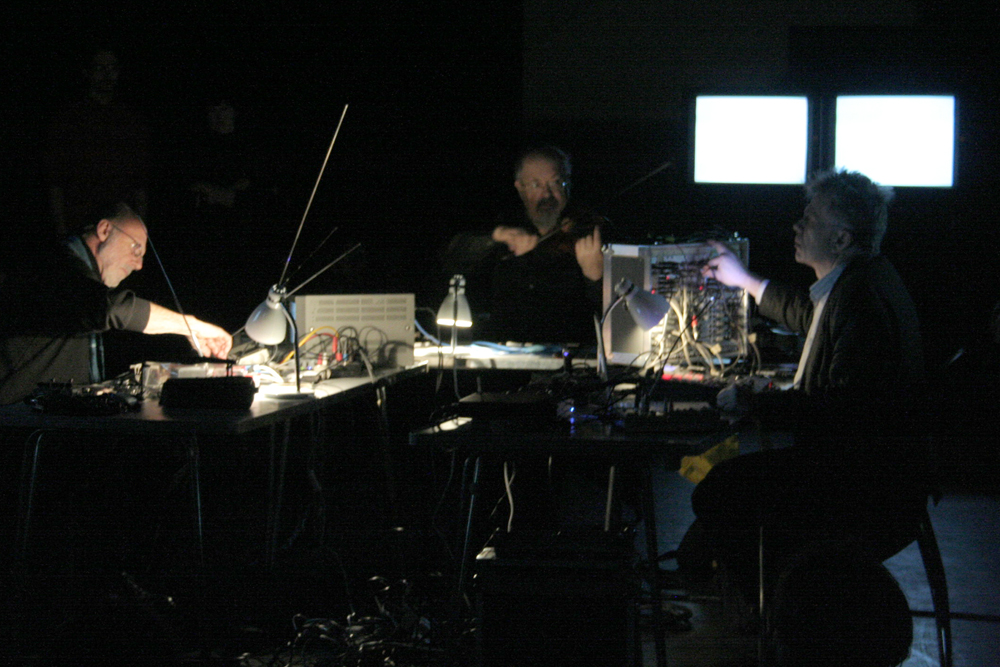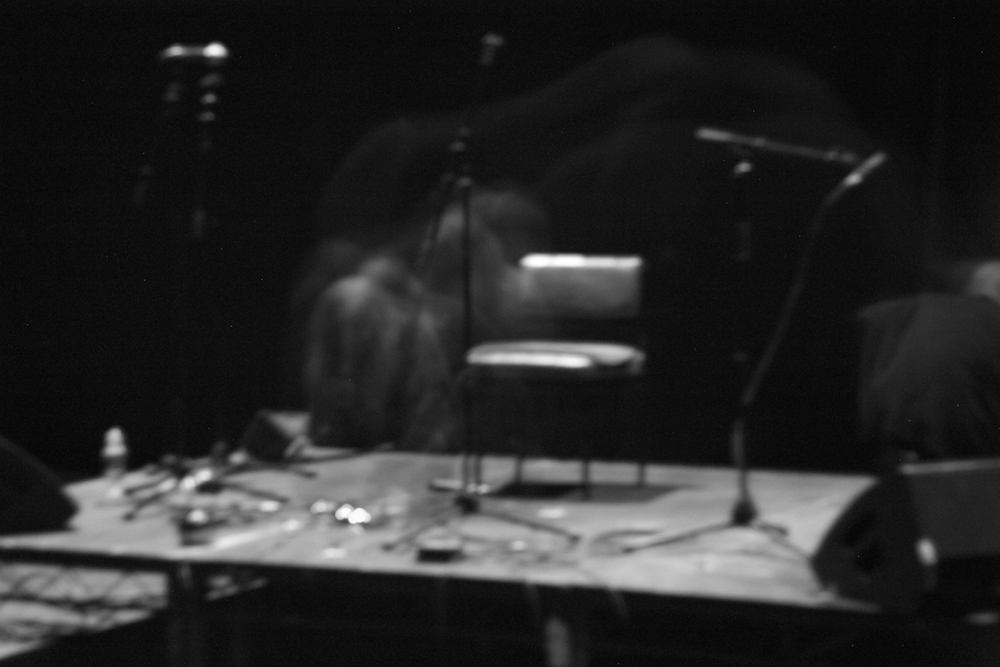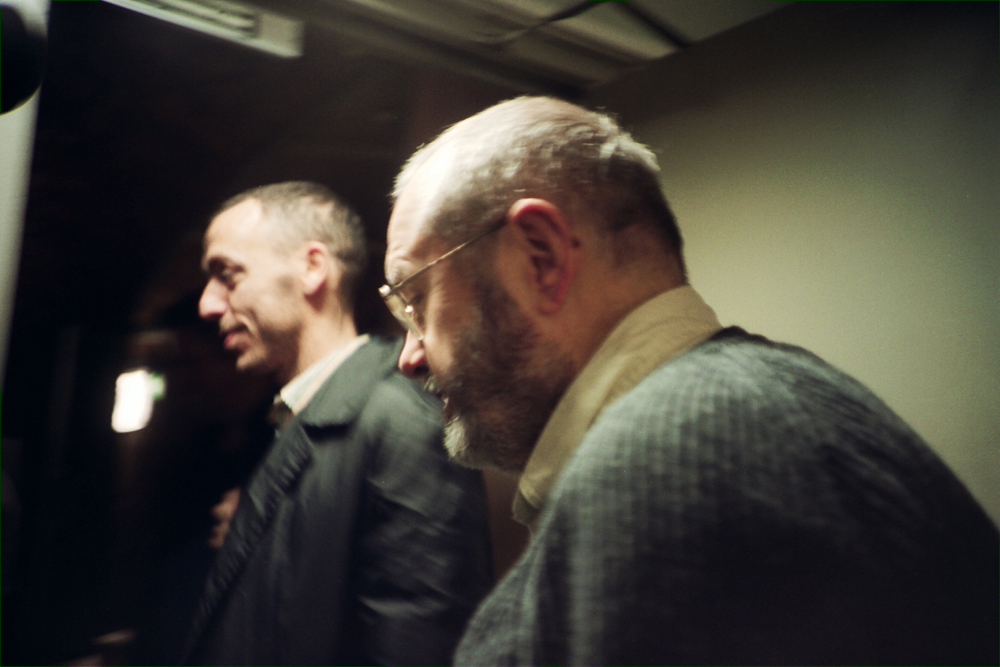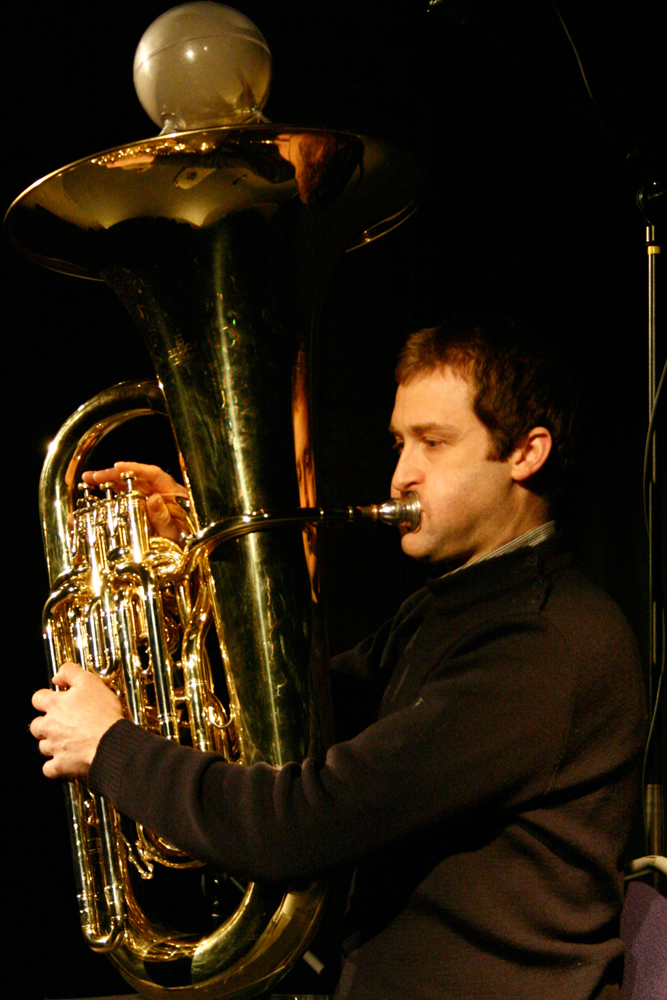
Kjell Björgeengen, Keith Rowe & Philipp Wachsmann
Keith Rowe Kjell Björgeengen Philipp Wachsmann
An immersive environment where sound is looped through oscillators, radio, guitar pick-ups and video amps to create dense strobing images and colours
Arika have been creating events since 2001. The Archive is space to share the documentation of our work, over 600 events from the past 20 years. Browse the archive by event, artists and collections, explore using theme pairs, or use the index for a comprehensive overview.

An immersive environment where sound is looped through oscillators, radio, guitar pick-ups and video amps to create dense strobing images and colours

Torrential, wrenching wordless wails, guttural screams and roars, a Haino solo vocal performance.

With a signature spartan sound and long term preoccupation in structural tactics (subtle shifts in density, drawn out stasis) Polwechsel blur the boundaries between individual instruments.

Merzbow takes the junk of sound and transforms it into blistering noise assaults with an incredible spectrum and impact.

A drone installation populated by flourescent strip lights working in complicity with analogue radios – “all the lights just do their thing”.

A prison abolitionist punk video-poetry-music mash up about our fucked-up dystopian society, RoboCop, kids toys and criminality.

Slowly evolving ultra-subtle harmonics and multi-tracked, otherworldly drones that only reveal their true power at high volume.

Robin Hayward – exploring the micro-sounds of a tuba, filling slowly with sand.

Using violin and cello the duo map out a twilight sonic world that seems to tread the faultlines between improvisation and composition.

Killer of Sheep is an undisputed masterpiece of African-American filmmaking and one of the most poetic, perceptive dramas ever made about family and community.

African American history, avant-garde jazz riffs and activism intertwine in experimental verse of extraordinary and affecting beauty that has to be heard.

A dense, hard, immersive, chaotic spatial performance in sound: a momentary gap in consciousness, free of order or decision.